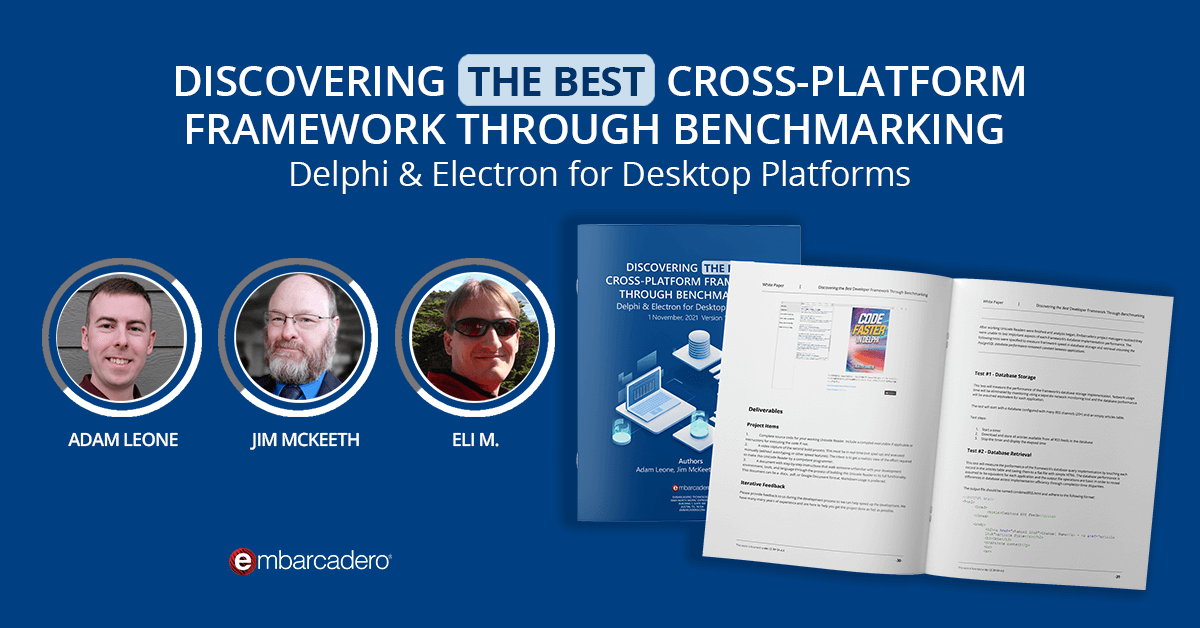
We’re back after putting together our week-long AI code camp. Such a lot of great and very varied AI content not just about RAD Studio’s own AI features but also everything from third-party add-ins available via GetIt to in-depth discussions on the pros and cons of the rise of large language models and their impacts on other ways of knowledge dissemination. We just about covered every angle we could – and there is more to come.
One session was with a Stack Overflow moderator – MVP, author, and photographer Dalija Prasnikar. Dalija discussed how AI has impacted Stack Overflow with respect to the effect it has had on traffic, users coming to Stack Overflow to get answers to tech questions, as well as the huge burden it has placed on the forum moderators having to combat AI ‘pollution’ of questions, and, more importantly, answers. Stack Overflow prides itself on the quality and effectiveness of the answers people give to questions posed by users. As Dalija explains, SO absolutely forbids people using AI-generated answers, and goes on to explain why that is. It’s a fascinating discussion and viewpoint by a moderator dealing with one aspect of the changing tech landscape.
Table of Contents
Where can I the replay of Dalija’s session on how AI is affecting forums like Stack Overflow?
It’s here.
Can I use AI to create PowerPoint presentations? How good is it, really?
Since I was going to be presenting the keynote for the AI code camp, I thought I would try and get AI to help me talk about.. AI. I prefer PowerPoint to create my slides, it has some very effective animation features. Recently Microsoft has embedded their CoPilot AI into almost every Microsoft Office application, so I decided to try it out and see what we could get.

Bearing in mind this is built-in to PowerPoint you would think it’s going to be great at creating presentations. You would, based on my experience, be wrong. I tried some wide variations on prompts including some quite detailed ones asking it to make me a set of slides covering key topics on AI along with arguments for and against, along with some brief examples of use cases.
Using AI to create PowerPoint slides: what worked, what did not work?
This is one of the slides the PowerPoint AI created. As a professional presenter with lots of experience in creating slide decks with PowerPoint and almost every other tool on every platform I can tell you this slide fails on almost every level. But then I think it’s obvious to everyone!

The background was automatically created based on one of my existing images. Great! The problem is the image is way too bold and, worse still the font is black and far too small. It is, as the cool kids say, an epic fail. 🤪
Even after I tweaked the colors and font sizes in the slide theme it would still require me to go through each slide and carry out considerable work to get it looking better. This was the first result after playing with the theme to improve things on a specific slide.

This is where I got to when I realized that even after juggling the AI theme considerably it was still not going to be any good. The autogenerated text content was trite, bland, and really didn’t impart any insights, I thought, into what AI is at this current time. I am sure with some experimentation creating better prompts and chastising the AI like a naughty child I would get to a better result, but, well, maybe not.

Does this mean AI is bad?
No, absolutely not. During the week-long AI code camp over and over again we saw great examples of what can be done by using AI tools like LLMs and examples such as the excellent how to create Artificial Neural Networks (ANNs) using C++Builder. David Millington’s session on his nascent codebot tool was a huge hit (more on that shortly) and MVP Dion Mai comprehensively demonstrated why he’s the CTO of AI startup Yvra.

During my opening keynote, I laid out how I personally see things with AI tools at the moment. I am, as I’ve said a few times, an optimistic skeptic. I am really excited at the many great things LLMs and other AI tech can accomplish. I am also fairly skeptical of the overwhelming and relentless spew of social media posts, mailshots, spam, and ads where it seems a lot of people are trying to ride the crest of that tidal wave. For some, when you scratch the surface, it leans towards vaporware. Having been in the IT industry for over 40 years I was there for several real ‘next big things’. Right now feels like that too but with this rush also comes people who are spending hard to gamble big bucks on making you part with your cash, or your privacy, or both. At Embarcadero we make sure AI is as useful as it can be while taking the utmost care of your intellectual property and will continue to iterate on that in future versions too – speaking of which, you can sign up for Ganymede, the beta for the next version of RAD Studio.
Embarcadero puts you and your code first. As I point out in the keynote, unlike some of the tech behemoths we do not have a $6.5 billion investment in AI to try and justify to shareholders. In fact, it’s become obvious that providing you with independent unfettered choices in how you use AI, or not, and what provider or providers you choose instead of being tied to one eye-wateringly expensive investment was a very smart move when we were designing Smart CodeInsight for RAD Studio 12. If you love ChatGPT and it’s in your comfort zone then you have it there, ready to go and be that AI helper you need. If instead you prefer Google’s Gemini, or Anthropic’s Claude or even a combination, support for them is ready to go. To make sure we are pleasing all of the people all of the time you can choose Ollama instead and have a completely offline LLM powering your Smart CodeInsight features. If AI is not for you, well, it’s off by default and you can leave it that way without worrying it’s secretly up to mischief.
What about the future of AI in RAD Studio and for Embarcadero?
We have more on this planned for the future and there are lots of exciting third-party options emerging too. For a technologist it’s a fascinating time to be in the industry. Honestly, it’s a truly invigorating era and I’m glad to see it happening. My dream of a real Star Trek computer is just a short time away now. Sadly, it may be a while before we can have food replicators that will conjure up tea, Early Grey, hot. Perhaps we should ask the AI to design one?
You can see the replay of my opening AI codecamp keynote in full here.

Why not download a free trial of RAD Studio today and see why we think it’s the fastest, easiest, and most efficient way to create cross platform apps that work on Windows, macOS, Linux, iOS and Android from a single code base?
Design. Code. Compile. Deploy.
Start Free Trial Upgrade Today
Free Delphi Community Edition Free C++Builder Community Edition





